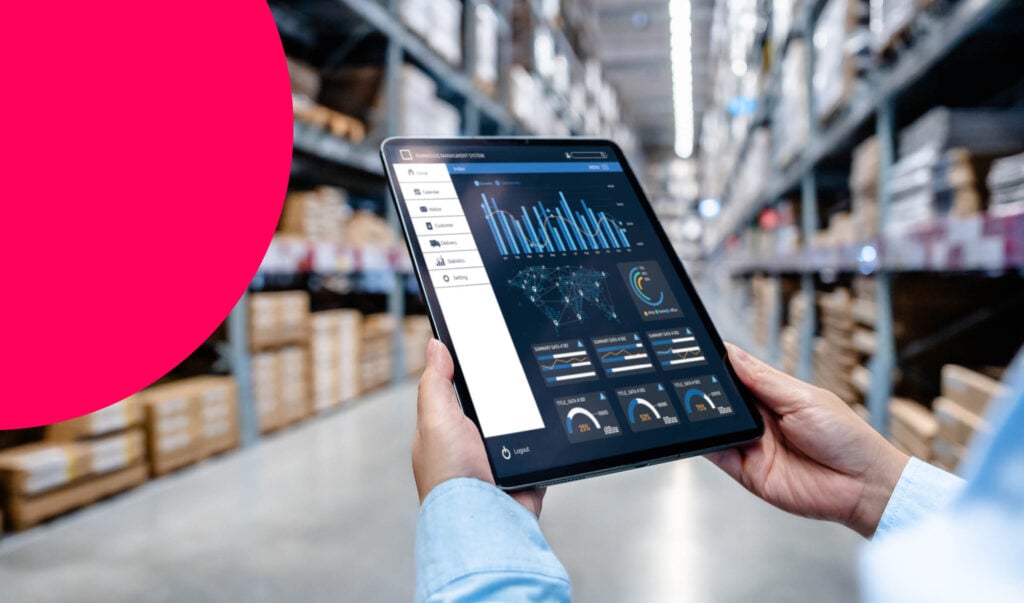Responsible Business Strategy: Staying the Course in Unpredictable Times
Amid ever-changing tariff policies in the US, regulatory uncertainty and supply chain disruption, sustainability remains a priority for many businesses. This is how to stay the course, building responsiveness, agility and more resilient supply chains while avoiding knee-jerk reactions to changeable policy.
Tariff policies in the United States are causing a headache for businesses. The current situation is fast-changing and uncertain. Initially, blanket tariffs were announced for all imports into the US, with some large variations across origin countries. Temporary reliefs have come in the form of 90-day pauses – however, things continue to evolve as trade deals are negotiated, and the situation remains unpredictable.
The new tariffs have already strained US supply chains, particularly in industries reliant on components typically sourced overseas like electronics and automotive, alongside international market instability. US manufacturing is seeing higher production costs and reduced competitiveness in global markets – with businesses in sectors including chemicals and manufacturing machinery reporting reduced demand for production.
Adding to this complexity, the US has introduced a series of rollbacks on environmental and labour standards protection legislation. But for businesses both in the US and internationally, the benefits of more sustainable operations and supply chains remain clear.
The whiplash effect
The unpredictability of tariff policies leaves businesses grappling with uncertainty. Many are caught in a dilemma, as all options seem fraught with risks – especially with the knowledge that policies may change again (and again).
Companies are assessing multiple scenarios to mitigate potential impacts, but the continued uncertainty complicates decision-making. Immediate priorities, such as securing supply chains and managing costs, dominate their focus while they navigate this volatile trade environment.
Why business leaders should resist kneejerk reactions
With tariffs being applied unilaterally by the US government and the possibility of further changes looming, it’s hard to predict when business-as-usual will resume. It’s understandable that some executive teams are considering rapid reactive responses, such as pulling out of certain markets or sourcing regions entirely.
However, such reactions can lead to unintended consequences, including:
- Identifying, onboarding and supporting new suppliers to produce goods to the expected standards takes time and money – which may outweigh any costs saved from avoiding high tariffs, especially if these are reversed or perpetually delayed.
- Reduced quality, operational effectiveness or production capacity with alternate suppliers.
- Delays to lead times where production infrastructures in alternative sourcing regions are unprepared to meet a sudden increase in demand.
- A very different landscape for sustainability risks – some may be lower, but some could be higher.
- Established suppliers going out of business – meaning companies are unable to return to previous sourcing partners once the tariff picture becomes clear.
We’re seeing many businesses take a more measured approach. Leaders are assessing the potential impact of the escalation of tariffs, particularly between China and the United States, and taking a risk-based approach to their responses – building additional agility into their sourcing approach without abandoning their current strategies entirely.
Businesses are doing this by assessing which of their current products could be impacted, the size of this impact, and looking at options to mitigate this – such as increasing supplier diversity across geographies to distribute risks.
Far from reducing their efforts, companies are doubling down on the efficiency, operational, financial and resiliency gains from responsible business practices.
Sustainability remains a priority…
In legislation
Despite some regulatory rollbacks, many drivers behind sustainability remain constant – even for US-based businesses. State-level legislation in the US, such as California’s Transparency in Supply Chains Act, continues to drive corporate accountability for supply chain practices.
Washington, California and New York are bringing in Extended Producer Responsibility laws, requiring businesses to manage packaging disposal and recycling. More sustainability regulations are emerging globally: Thailand recently introduced a mandatory supply chain due diligence bill, while Australia and the UK plan to enhance their modern slavery laws. India also requires large companies to report on ESG. Most significantly, China has committed to more ambitious climate goals, including reduction of all greenhouse gas emissions across its whole economy.
The EU regulatory landscape still leads the way, despite the proposed changes in the Omnibus Simplification Package – other new laws like the Forced Labour Regulation and Deforestation Regulation require businesses to assess and manage social and environmental risks in their supply chains.
For resilience
Material risks regarding climate and labour conditions persist. As the northern hemisphere approaches summer, we’ll likely see a surge in extreme weather events and excessive heat linked to climate change – a stark reminder for businesses of the need to address these challenges proactively.
This isn’t just about looking after workers: it’s estimated that extreme heat costs the US economy billions of dollars in lost productivity. Companies could see both their own and suppliers’ operations suffering from higher absence and injury rates, machinery faults, higher energy and water bills – even before negotiating disasters like wildfires and drought.
For consumers and investors
Consumers seek accountability and expect businesses to do the right thing: an estimated 68% of Americans think that businesses should play a key role in addressing climate change. Meanwhile, investors demand assurance of long-term viability in a warming climate and the green economy is thriving, presenting significant opportunities: by 2040, its global value could rise to $11 trillion, with the US green economy already at $1.3 trillion in sales and employing 9.5 million people. Analysts, tax experts and CFOs all recognise the material value of sustainability initiatives and disclosures.
Climate hazards could cut 7% from corporate earnings annually by 2035, according to research from the World Economic Forum and others.
How to stay the course as a responsible business
Ethical business practices, responsible sourcing and supply chain visibility are more critical than ever during times of upheaval. The sudden shifts in tariff policies have placed immense pressure on suppliers, leading to ripple effects throughout supply chains.
When businesses respond to these challenges by cancelling orders or making abrupt changes, the impact is not limited to direct suppliers alone. Such actions trickle down to supply chain workers in all tiers, who may suffer from reduced incomes, delayed wages or even an increase in excessive working hours.
Shifting supply chains also cause workers to migrate to high-demand locations. As migrant workers are particularly vulnerable to exploitation, this could fuel rising risks of forced labour in supply chain regions.
With climate and human rights risks potentially increasing, businesses are having to own their risks and take actions to prevent these becoming real impacts to workers and the environment.
Our top tips for sustained stability
- Leverage in-depth worksite data and risk assessments to understand sustainability risks in alternative sourcing regions and new suppliers. Both are available through the Sedex Platform, which contains information on over 115,000 supply chain sites. Use these insights to identify the highest-risk issues and areas, to prioritise for further due diligence and risk mitigation efforts.
- Maintain open communication with suppliers and seek to support them through these difficult times. This builds more resilient partnerships, mutual trust and good faith.
- Explore collaborative solutions to manage costs or offer flexibility to suppliers in fulfilling contracts.
- Buying companies can fulfil existing terms and contractual financial arrangements, regardless of suppliers’ positions, to meet their end of contracts.
- Stay firm on sustainable sourcing practices. This builds resilience while safeguarding the livelihoods of supply chain workers, and strengthens a company’s reputation as a responsible global player.
Take time to think about the impact of decisions: on suppliers, on supply chain resilience, on the quality of goods being sourced, on brand reputation and on stakeholder relationships.
For specialist support, our Sustainability Consulting team can work with internal departments to refine strategic options, assess supply chain risks and develop streamlined programmes that address both short-term operational priorities and wider sustainability-related demands.
Navigate future turbulence through risk-based due diligence
Political headwinds are squeezing budgets, but we see businesses still determined to do the right thing by their suppliers and customers. Supply chain due diligence remains essential as businesses explore alternative suppliers – our solutions enable accelerated due diligence by offering instant access to suppliers’ existing data in our Platform.
The political headwinds in the US, backlash against ESG investing and scrutiny over suspected greenwashing are encouraging businesses and their stakeholders to reflect on the true value of sustainability. Agendas aren’t being abandoned: they’re being reshaped.
Our customers are continuing with their sustainability initiatives, as these are embedded in long-term strategies and investment plans. Far from reducing their efforts, companies are doubling down on the efficiency, operational, financial and resiliency gains from responsible business practices.
Ultimately, avoiding knee-jerk reactions requires a focus on resilience and adaptability. By staying the course and making thoughtful decisions, businesses can successfully navigate the complexities of US tariffs and other uncertainties without compromising their long-term goals.




